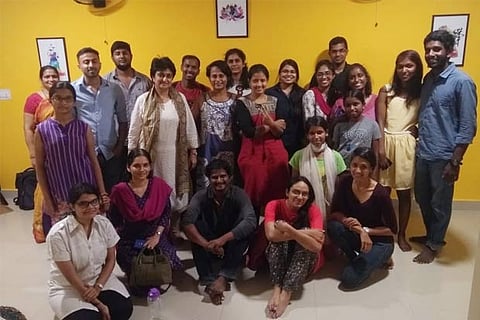

Chennai
Sonal Jain, the co-founder of Boondh, a social enterprise that aims towards sustainable menstruation, has come up with an interesting session in the city called Journey of Things, through which she tries to talk about the journey of things that we use on a daily basis.
She says, “Through our upcoming session, we are trying to explore a product’s lifecycle — where it comes from, what it is made of, and how it reach us and where it goes after parting with us.” Sonal points out at the steel straw, the latest centre of attraction.
“Why do we need straws in the first place? We started using them to drink from narrow-necked bottles or tender coconuts, which were unhygenic or inconvenient. But things have changed now; coke comes in sterilised plastic bottles and one can drink tender coconut by transferring it to a glass.
There is no need for an alternative in the first place. The production of a single ton of steel generates two tons of CO2 emission. The whole idea of a minimalist is to see the possibility of reusing material. Reduce, reuse and recycle should be the way to go, but it all starts with refuse,” she says.
“We are here to share knowledge and experience, facilitate lifestyle shifts and support each other in taking better care of ourselves, the community and the planet. The upcoming event on focuses on fast fashion. If something comes extremely cheap to you, it means that somewhere someone is being exploited. We aim to introduce this as a thought to people and act as facilitators. The idea is to raise an awareness on these, so when consumers make choices, they get to make informed and hopefully ethical choices.”
She also stresses on the importance of sharing economy model. “Take the example of a driller. You might own a driller, but you might be using it just for 40 times in 20 years. Similarly, everyone in your street might own a driller. Could we consider a model where the entire street invests in a single driller and shares it? So when you throw it away, you need to deal with very less wastage.”
She continues, “Advertising is influencing us in a way that is diminishing our independent thinking capabilities. Those who are interested to participate can bring any one piece of clothing that you haven’t used in the last three months. Our reflection process would definitely change the way we look at things and consume them,” she sums up. The upcoming session will be held at Strength System, Teynampet, on July 15.
Visit news.dtnext.in to explore our interactive epaper!
Download the DT Next app for more exciting features!
Click here for iOS
Click here for Android